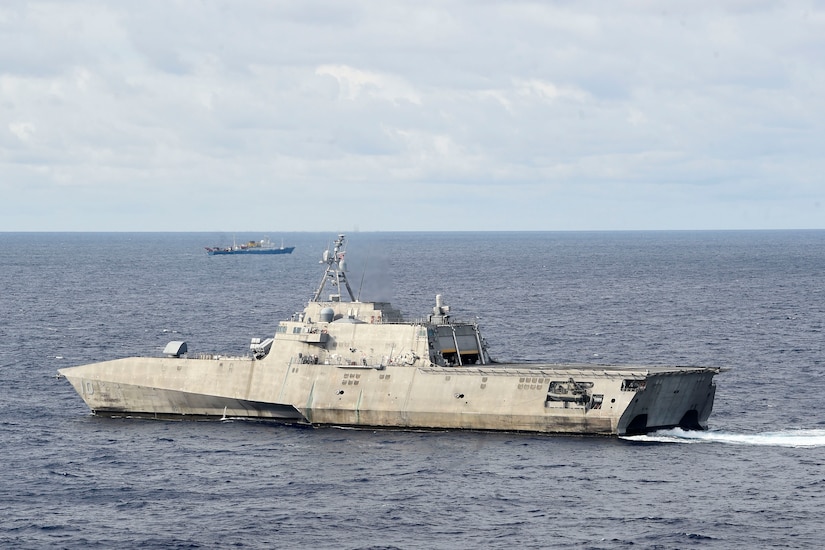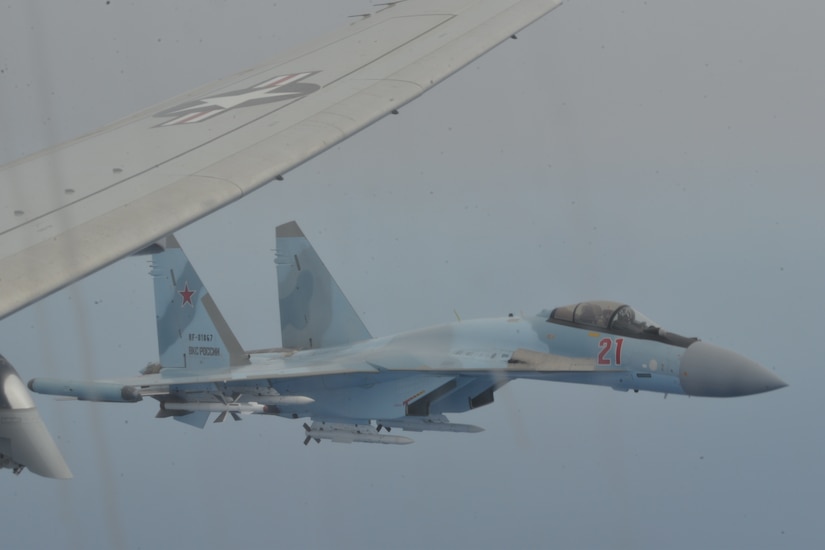June 2, 2021 | , DOD News
Kahl spoke to an all-hands meeting of the policy office in the Pentagon last week. He spoke about "getting China right," emphasized the importance of integrated deterrence, and called on members of the office to be flexible as they deal with a complicated, messy and often violent world.

The top priority for the department is getting China right, Kahl said. Austin has described China as America's pacing threat, and the undersecretary spelled out what this means to members of the DOD. "It means that China is the only country that can pose a systemic challenge to the United States in the sense of challenging us, economically, technologically, politically and militarily," he said.
Kahl was quick to point out that this does not mean an inevitable spiral into conflict between the U.S. and China. "It does mean that we will have a more competitive and, at times, … adversarial relationship with Beijing," he said.
Kahl emphasized the need to "to get that [relationship] right" in a way that advances our interests, protects our security, enhances our prosperity, preserves our way of life and protects our allies "in the face of a lot of challenges from China across the board."
He also emphasized that the DOD is just one of many U.S. agencies that must "get China right" saying that relations with the nation will require "arguably a whole of society" response. China requires short-term and medium-term policies, for sure, but it also requires agreement on long-term planning, he said. Policies with China must be effective for decades to come.
The U.S. has a powerful position, Kahl said. "My own view is that we win this competition by emphasizing our strengths," he said. "Our strengths as an American society are … the innovative and creative and hardworking spirit of our people."
"Our strengths are our values, because the competition with China is … a competition of systems," he continued. "We have to prove that our government can function and that our democracy is still vibrant. And we need to play to our strengths, which is an unrivaled network of partners and allies around the world. It is the envy of the China's and Russia's and Iran's and North Korea's of the world."
The U.S. must tend to the alliance system and modernize it and cultivate it, and there are roles for policy personnel in the effort.
Kahl spoke of the importance of integrated deterrence. "As we work on the national defense strategy, this concept of integrated deterrence will be a cornerstone of that approach," he said.
Austin envisions this as integrating deterrence across domains of competition and conflict. The military already does a good job with this in the more conventional domains of land, sea and air. But integrated deterrence will include space and cyber domains and the informational world as well. "These are areas, frankly, where our peer competitors are pressing us, and we have hard thinking to do," Kahl said.
Integrated deterrence also must be effective across the spectrum of conflict. He said. Russia and China will often operate in the "grey zone" short of conflict. "How do we deter and operate in that environment?" Kahl asked.
Integrated deterrence in this case may include the intelligence and information space. It may require economic actions and diplomatic efforts.

Integrated deterrence will also require allies and partners. "If we are really going to deter countries that are rising as fast as China, or are getting as assertive and aggressive as Russia, we're going to need friends," Kahl said. "We're going to need to integrate them into our understanding of what deterrence means."
U.S. policy personnel cannot take their eyes off the other parts of the world, the undersecretary said. Iran, North Korea and violent extremist groups remain persistent threats. The DOD will have to manage the risks around these threats differently.
"The real challenge is how do you address those persistent threats while managing the risks associated with what you're doing in those other areas," he said.
Finally, the policy personnel need to be ready, and ensure the department is ready, for transnational catastrophic threats. Kahl said the COVID-19 pandemic is a good example of that. He also said that the pandemic "won't be the last pandemic in our lifetimes."
Climate change also exacerbates many of the problems facing the world and is an existential problem on its own. DOD policy needs to understand the implications for the military from climate change and help military officials combat climate change itself, while dealing with the effects of the problem from increased violence of storms to rising sea levels to the opening of the Arctic and much, much more.








No comments:
Post a Comment